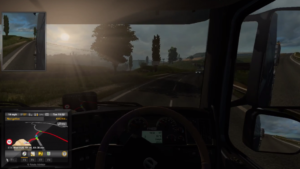
“But you only teach six lessons a day and you have a guaranteed summer holiday…”
Ah, the common misconception that being a teacher is somehow an “easy” job!
We all know the truth, however. We know that those six hours in the classroom are intense, full hours; we know that those six hours are supported by more hours of planning and preparing; we know that those six hours are followed by marking and reviewing; and we know that those “guaranteed” weekends and holidays often include training and development.
We devote ourselves to the task regardless. We take it all on for the benefit of our students, coming in early and/or taking work home when necessary. For dedicated teachers, it can be difficult to let go.
But we have to let go sometimes… Work too hard for too long and the energy and enthusiasm needed to help ourselves and our students develop starts to wane. Maintaining that interest in development while also finding time to relax can be a tricky balance, so in this post I will share things I do at work and away from it to avoid burning out.
At work – Time to rewind
As mentioned above, a teacher’s day can be a busy one and we are often as keen as the students to head on home once the last lesson has finished. I worked for many years in a school that let teachers do just that but I often found that once I was home, my head was still full of thoughts about the classes I had taught and ideas for the next day’s lessons. It was then easy to fall into the trap of taking work home and, although I was physically at home, mentally I was still at work.
In my next job, the system was different. Teachers were required to stay behind after the final class for an extra hour. My initial reaction was that this was a terrible idea but I soon realised the benefits. For me, it was not so much the intended time to plan for the next day that had a positive impact but rather the chance to sit down and rewind – think about the day’s lessons, what went well, what didn’t go so well, and what I could do differently next time.
Now I find myself a few months into another job where once again we are free to go as soon as class is over. However, I find that I still stay in the teacher’s room for a while longer to reflect on the day and clear my head. How? Well, there are two main ways I go about this:
- Writing a journal
- Talking to like-minded colleagues
After a hectic day, finding a quiet spot to sit down and write my thoughts out on paper helps in a number of ways. First and foremost, it is cathartic – I revisit moments in class, positive and negative, and release them onto the paper. It also provides a record that I can come back to and use to reflect, develop, and inform future lessons. Finally, as I am the ICT Coordinator in my school, it is nice to take 15 minutes away from the glare of a PC screen or interactive board and put pen to paper (sometimes, I later take these journal notes to form the basis of my blog posts and articles meaning a return to the screen, but that’s another story!).
Of course, journal writing is something of a solitary act so it is good to take time to talk to colleagues who are also still present after the students have left. They are often around for the same reason as me and are more than happy to engage in a quick but fruitful discussion about the day’s teaching. This is a great way to not only release your thoughts for the day but also to hear about another person’s class, exchange some ideas and advice.
After Work – Time to Unwind
There was a time when I used to take work home – written assignments to mark, lessons to plan and materials to prepare for the next day- but no more! I make sure I use my time during the day to get all that done (and if there isn’t enough time, I speak to my line manager about it – say nothing and you will only get more work!).
It is impossible to fully switch off, of course. Ideas for activities in upcoming lessons still pop into my mind at random times and I do still on occasion talk about work with my family when I get home but I don’t let that take up more than a few moments of my free time.
In my current job, on some days I finish in the afternoon and on others I go home late in the evening. On the days when I finish early, there is ample opportunity to unwind and plenty of time to spent with my family. When I work evenings, however, the kids are often asleep when I get home and there are only a couple of short hours to unwind before heading to bed.
I recently purchased a fitness and activity tracker (one of those that you wear like a bracelet), which gives me data on my sleep patterns and it revealed an interesting insight -when I was working evenings, my quality of sleep was much lower than the other day. I woke up more often in the night and had fewer hours of “deep sleep”. I did a little research on this and found that my mind needed to be less active when I got home. I would often watch a football match or an episode of a favourite TV show but this would leave my mind buzzing right before bedtime.
I found the best way to relax was through another digital hobby of mine – video games. Now, you may be thinking that those would surely be just as stimulating, if not more so, than watching a TV show or a live match. It’s all a matter of the kind of video game you play. A fast-paced action adventure game will get your mind racing rather than relaxing but there are also games which don’t demand much of the player, or at least give the player the option of not doing much. So, sometimes, I log into World of Warcraft and simply go fishing or I load up Euro Truck Simulator (my current favourite) and just drive, admiring the scenic European countryside as I go. Not exactly demanding but that’s kind of the point!




